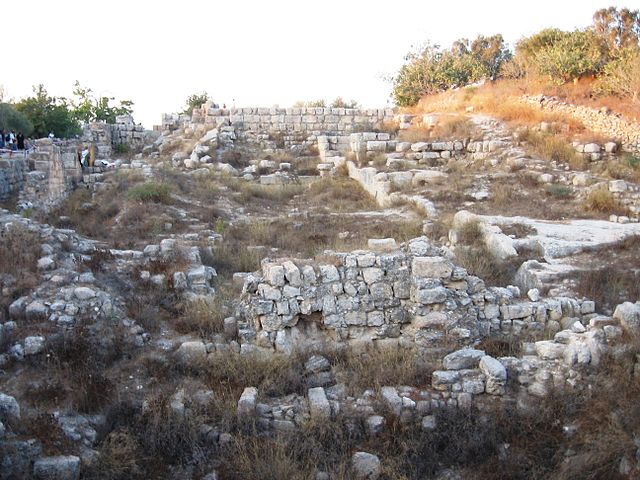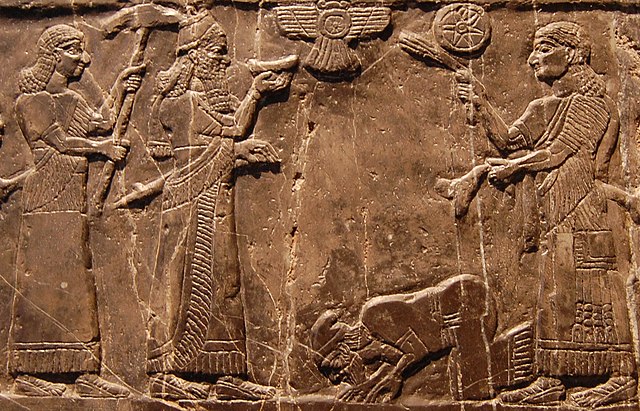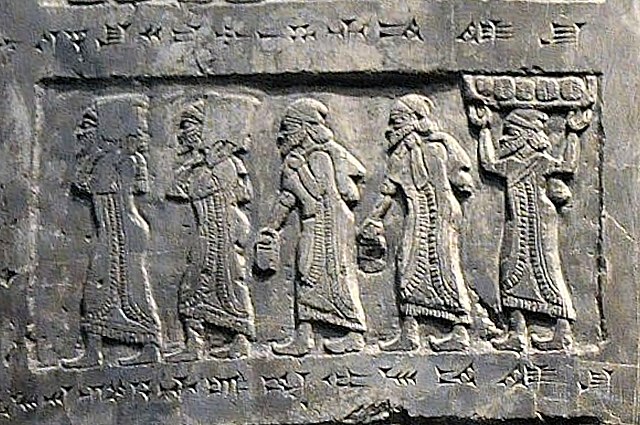Jeroboam I was, according to the Hebrew Bible, the first king of the northern Kingdom of Israel following a revolt of the ten tribes against Rehoboam that put an end to the United Monarchy.
Detail of Jeroboam Sacrificing to Idols by Fragonard, 1752
Jeroboam sacrificing to his idol, oil on canvas by Claes Corneliszoon Moeyaert, 1641
Gerard Hoet, Ahijah's prophecy to Jeroboam, 1728.
Jeroboam setting up two golden calves, Bible Historiale, 1372
Kingdom of Israel (Samaria)
The Kingdom of Israel, or the Kingdom of Samaria, was an Israelite kingdom in the Southern Levant during the Iron Age, whose beginnings can be dated back to the first half of the 10th century BCE. The kingdom controlled the areas of Samaria, Galilee and parts of Transjordan. The regions of Samaria and Galilee underwent a period with large number of settlements during the 10th century BCE, with the capital in Shechem, and then in Tirzah. The kingdom was ruled by the Omride dynasty in the 9th century BCE, whose political center was the city of Samaria.
Ruins of the Omride palace in Samaria, capital of the Kingdom of Israel
Jehu's delegation to Shalmaneser III, Black Obelisk, 841–840 BCE.
The tribute of Northern Kingdom King "Jehu of the people of the land of Omri" (Akkadian: 𒅀𒌑𒀀 𒈥 𒄷𒌝𒊑𒄿) as depicted on the Black Obelisk of Shalmaneser III, 841–840 BCE. This is "the only portrayal we have in ancient Near Eastern art of an Israelite or Judaean monarch".
Part of the gift-bearing Israelite delegation of King Jehu, Black Obelisk, 841–840 BCE.








